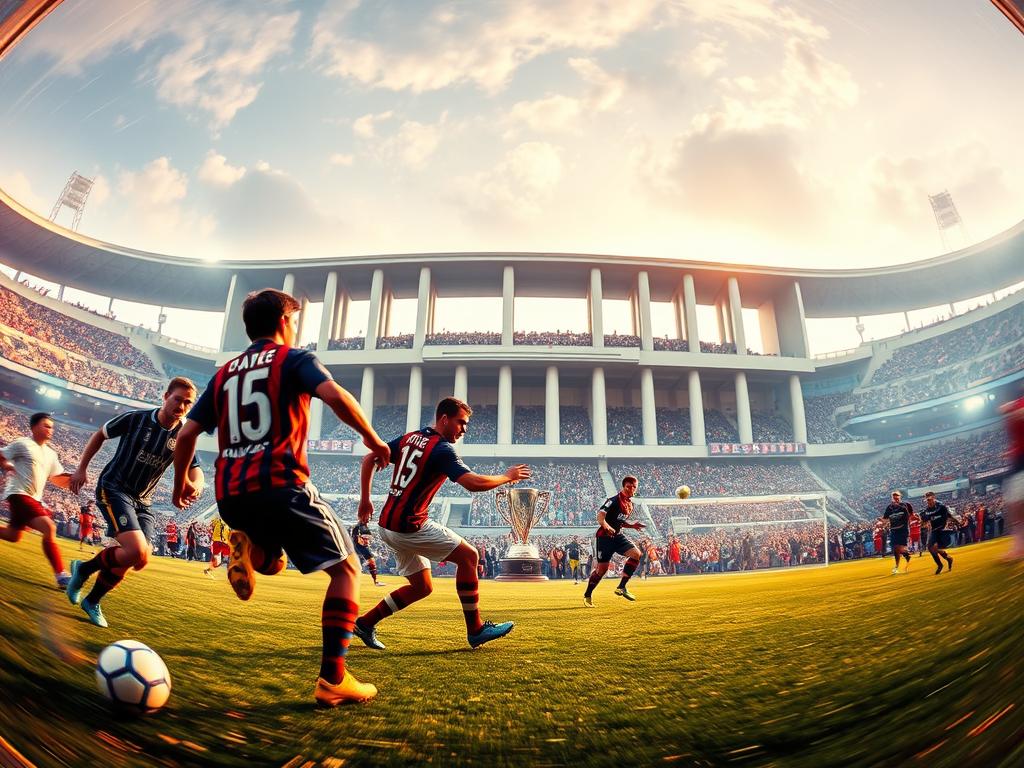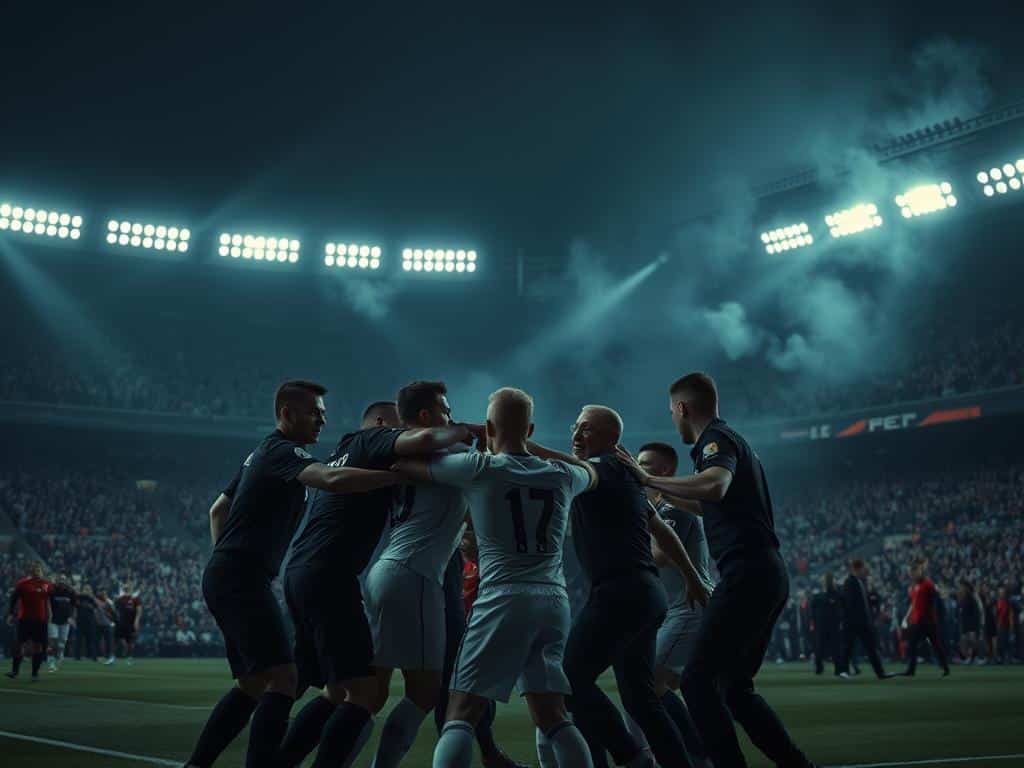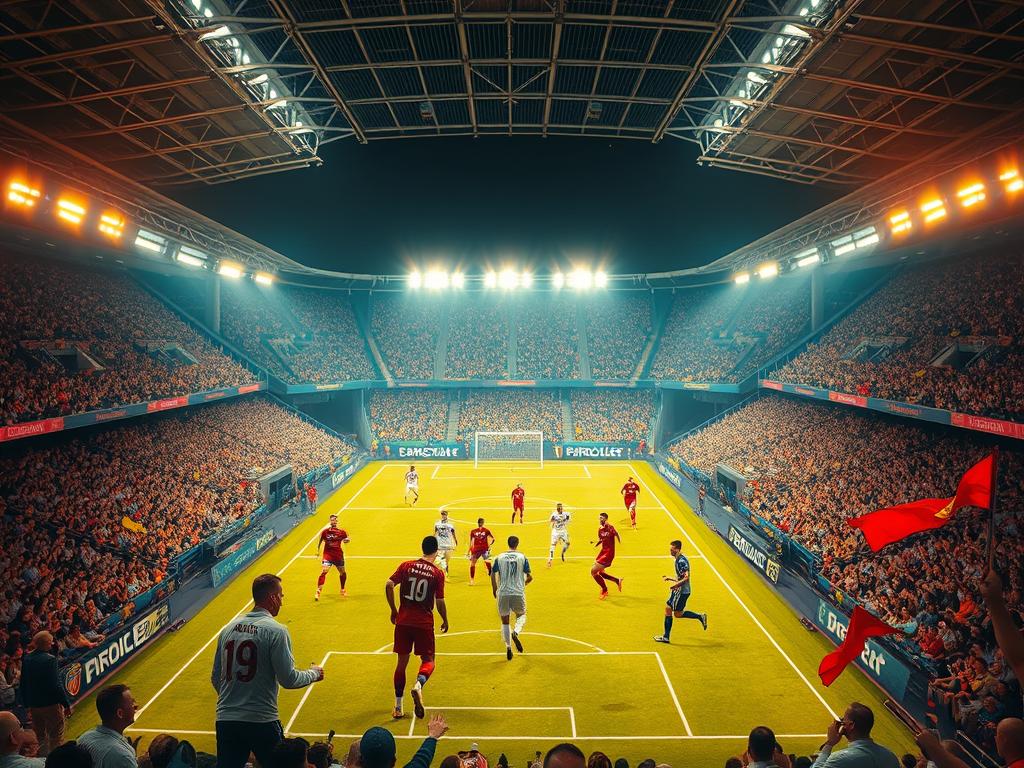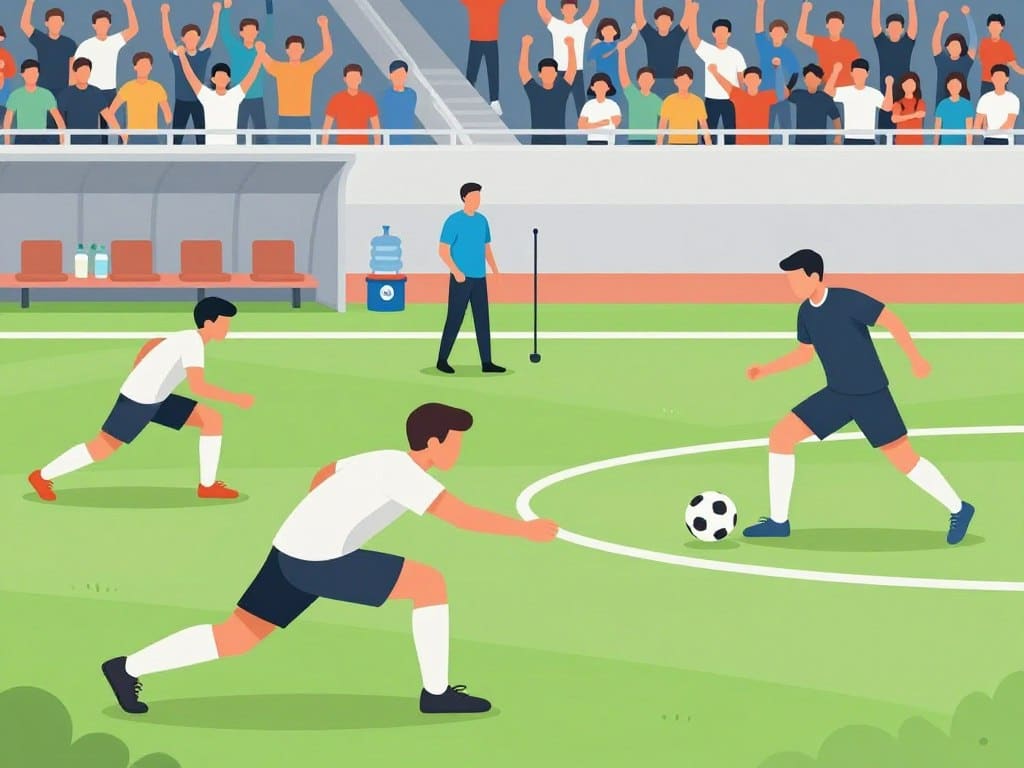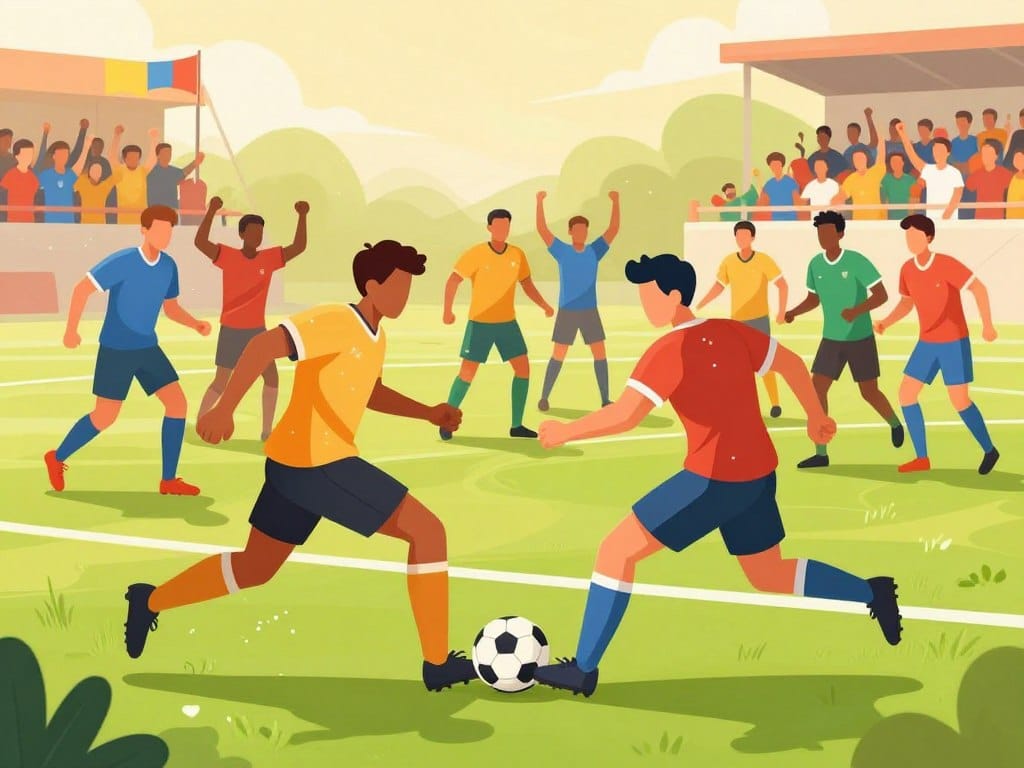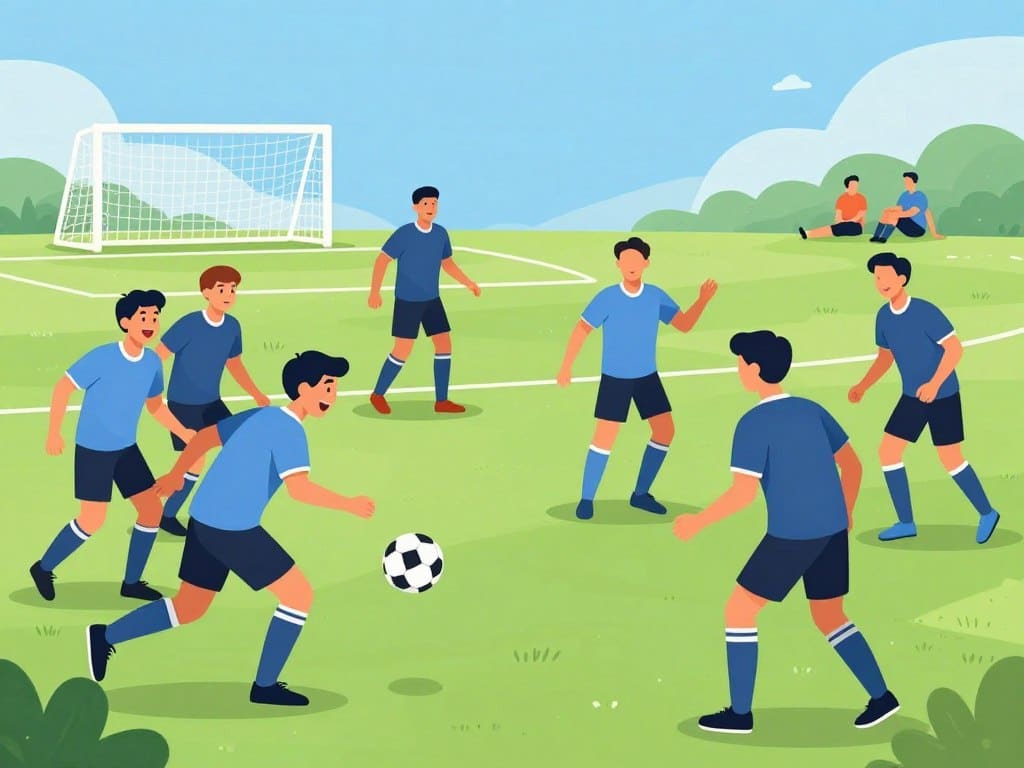Ever wondered how Europe’s ultimate club showdown began? The UEFA Super Cup started as a bold idea by Dutch journalist Anton Witkamp in 1971. His vision? A thrilling match between the winners of the Champions League and Cup Winners’ Cup.
The first official match kicked off in 1973 when Ajax faced AC Milan. But the real story begins earlier. In 1972, Ajax played Rangers in an unofficial clash due to UEFA sanctions. This controversial game set the stage for what would become a legendary annual event.
Backed by Dutch newspaper De Telegraaf, the competition overcame early resistance to become a staple of European football. From trophy designs to political hurdles, its early years were anything but ordinary.
The Birth of the UEFA Super Cup: A Dutch Vision
Dutch football culture played a pivotal role in shaping this continental showdown. In 1971, journalist Anton Witkamp envisioned a clash between Europe’s best—the European Cup and Cup Winners’ Cup champions. His idea? A match to crown the ultimate club.
Anton Witkamp’s Revolutionary Idea
Witkamp’s proposal was simple yet bold. He wanted to pit Ajax, the dominant European Cup winners, against the Cup Winners’ Cup holders. Backed by Dutch newspaper De Telegraaf, the plan faced early resistance. But Witkamp’s persistence paid off.
The Unofficial 1972 Match: Ajax vs. Rangers
Before UEFA’s approval, Ajax faced Rangers in 1972. Due to UEFA sanctions, the 6-3 aggregate win remains unofficial. Political drama surrounded Rangers’ banned European status, adding intrigue. This match proved the concept’s potential.
UEFA’s Official Endorsement in 1973
Everything changed in 1973. AC Milan’s 6-1 thrashing of Ajax showcased the spectacle’s appeal. UEFA finally adopted the UEFA Super Cup, with total football philosophy influencing its identity. The rest, as they say, is history.
- Newspaper sponsorship: De Telegraaf funded early matches, blending media and sport.
- Cold War impact: The 1975 Dynamo Kyiv vs. Bayern clash carried political undertones.
- Legacy: Witkamp’s vision became a cornerstone of European football.
UEFA Super Cup History: Evolution of the Competition
Few tournaments have transformed as radically as this annual showdown. From match structures to qualifying teams, every change reflected football’s growing global appeal. Let’s break down the biggest shifts that shaped today’s event.
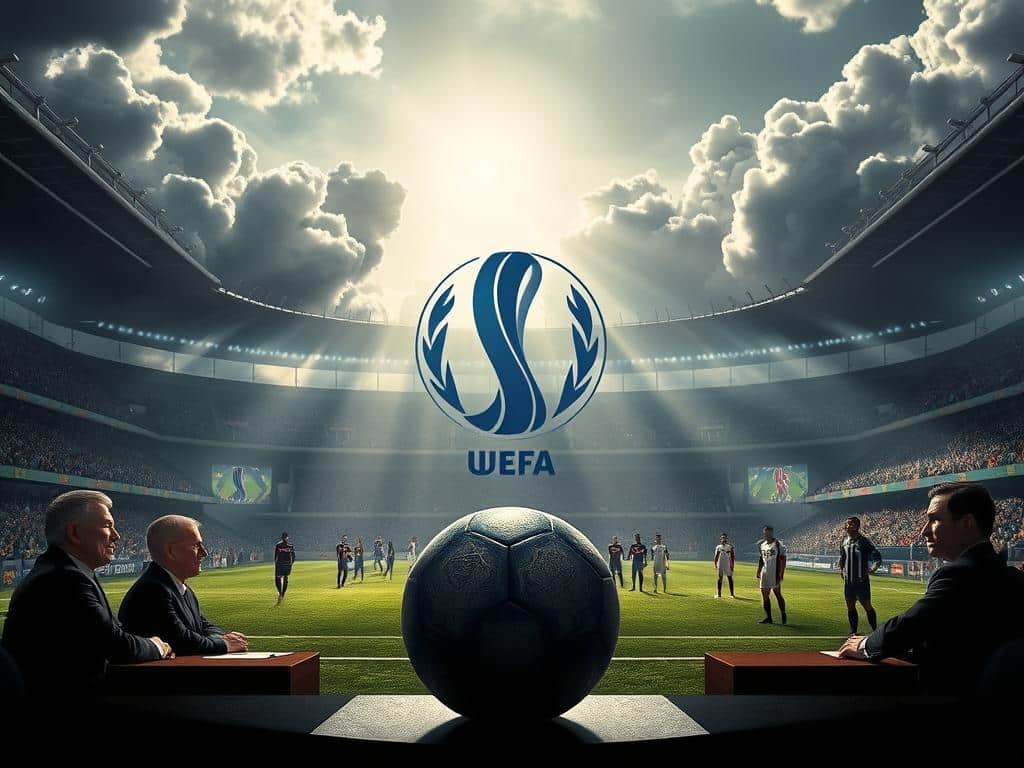
From Two-Legged Finals to Single Matches
The early years featured home-and-away matches between uefa cup winners. This format lasted until 1997, creating epic battles across two legs. Financial concerns and fan demand pushed UEFA toward single-match deciders.
Monaco’s Stade Louis II hosted the event from 1998-2012. The compact stadium created an electric atmosphere. Since 2013, the game rotates across major European cities, boosting global interest.
The Shift from Cup Winners’ Cup to Europa League
When UEFA dissolved the Cup Winners’ Cup in 1999, qualification rules needed overhaul. League winners from secondary competitions gained entry. This change balanced prestige between top clubs and rising contenders.
The new format also aligned with Champions League expansions. More teams now dream of reaching this season-opening spectacle.
Key Format Changes Over the Decades
UEFA constantly adapted to football’s changing landscape:
- 1984/1986: Single-match exceptions due to scheduling conflicts
- 1998: Permanent move to neutral venues increased revenue
- 2020: Budapest hosted a pandemic-era match with limited fans
Each adjustment aimed to enhance competitiveness while honoring the event’s legacy. Today’s streamlined format delivers maximum excitement in one match.
Iconic Moments and Legendary Matches
Some matches transcend sport—they become legends etched in football memory. These three clashes showcase skill, drama, and the unpredictable magic of European football.
1979: Nottingham Forest’s Underdog Triumph
Brian Clough’s Nottingham Forest defied expectations against Barcelona’s star-studded squad. Their 1-0 victory marked England’s first win in the competition.
Clough’s tactical genius neutralized Johan Cruyff’s creativity. A single goal from Charlie George proved enough to shock the UEFA Champions titleholders.
2012: Falcao’s Hat-Trick Against Chelsea
Radamel Falcao delivered a 45-minute masterclass for Atlético Madrid. His treble—the only single-match hat-trick in the event—humiliated the UEFA Champions League winners 4-1.
Each goal showcased different skills: a header, left-foot rocket, and clinical finish. Chelsea’s defense had no answers for the Colombian’s brilliance.
2020: The Pandemic-Era Super Cup in Budapest
Bayern Munich faced Sevilla in a historic match with only 30% stadium capacity. Pandemic protocols reshaped fan experiences but couldn’t dim the action.
Javi Martínez’s extra-time winner secured a 2-1 victory. The game proved football’s resilience during global challenges.
- Record-breaking goals: Juventus’ 9-2 demolition of PSG in 1996 remains the highest-scoring final
- German wall: Manuel Neuer’s penalty saves against Chelsea in 2013
- Spanish dominance: Sevilla’s six runner-up finishes highlight their consistency
Records and Statistics: Who Dominates the Super Cup?
When it comes to European football dominance, certain clubs and players stand above the rest. The numbers reveal a clear hierarchy of excellence spanning decades. Spain’s influence shines brightest, with their teams claiming nearly half of all titles since 1973.
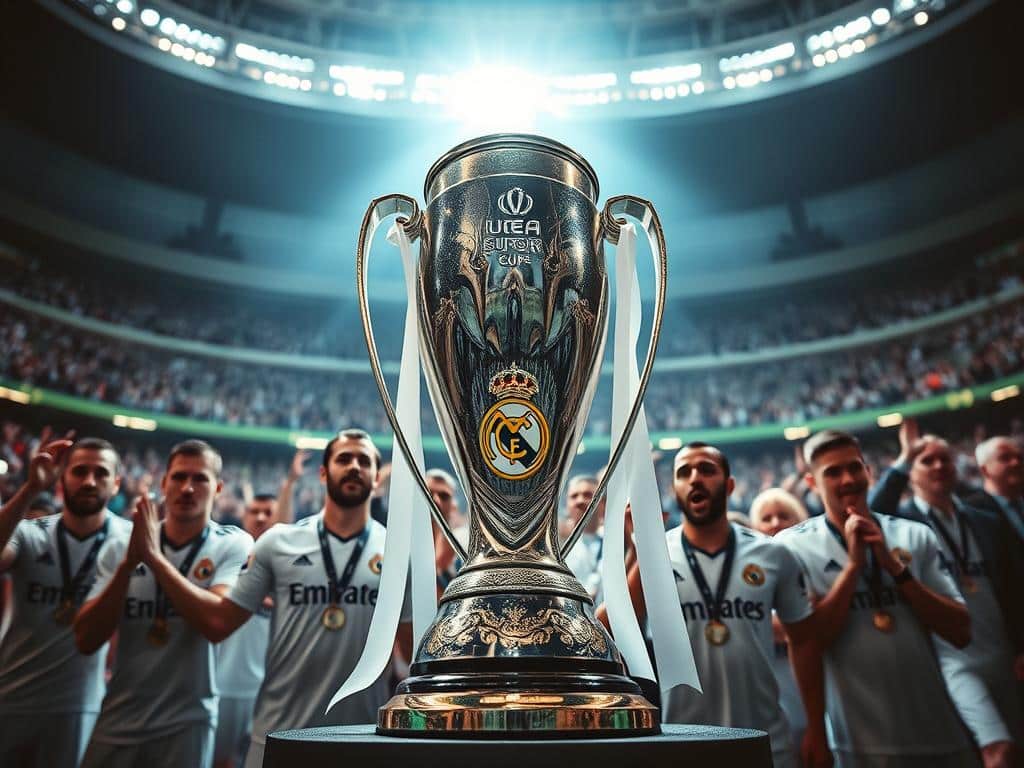
Most Successful Clubs: Real Madrid, Barcelona, and Milan
Real Madrid leads with six victories, their latest coming in 2024 against Atalanta. Their blueprint? Adaptable tactics and clutch performances when trophies are on the line. You’ll notice their wins span three different managerial eras.
Barcelona and AC Milan follow closely with five and four titles respectively. These elite clubs share a knack for developing world-class talent. Their consistent success highlights the importance of strong youth systems.
Individual Legends: Carvajal, Ancelotti, and Messi
Carlo Ancelotti stands alone with four wins as manager—a testament to his tactical flexibility across generations. His 2024 victory came thirty years after his first triumph.
Among players, Dani Carvajal holds the appearance record with six finals. Lionel Messi’s scoring mark includes goals in three separate winning campaigns. These icons prove big-game performance separates good players from legends.
Nation vs. Nation: Spain’s Unmatched Dominance
Spanish clubs have collected seventeen victories—more than double their nearest rivals. From Casillas to Ramos, their production line of heroes delivers in crucial moments. This sustained excellence reflects La Liga’s competitive depth.
- Sevilla’s six final losses since 2006 show both consistency and heartbreak
- Goalkeepers decide 40% of shootouts—Neuer’s 2013 heroics exemplify this
- England and Italy have traded blows recently, with three wins each since 2010
The Modern UEFA Super Cup: Global Spectacle
Modern football demands spectacle, and the Super Cup delivers it brilliantly. This August showdown now rivals World Cup finals in production value, blending tradition with cutting-edge entertainment.
Neutral Venues and Expanding Reach
Host cities like 2025’s Udine, Italy, gain massive economic boosts. Hotels and restaurants see 300% revenue spikes during match week. The neutral venue policy ensures fair play while growing the game globally.
You’ll see 60% of tickets reserved for competing clubs’ fans. This creates electric atmospheres despite the date coinciding with preseason preparations. Future bids prioritize cities with direct flights to major European hubs.
Sponsorships and Commercial Growth
FedEx and Qatar Airways invest heavily to associate with Champions League winners. Their deals reach 70% of the Champions League’s value, proving the event’s marketing power.
Heineken’s interactive fan zones now feature VR penalty shootouts. Such activations help sponsors connect with younger audiences beyond traditional stadium ads.
Future of the Competition: Innovations on the Horizon
Discussions include a women’s edition matching UWCL and Europa League victors. Climate-friendly initiatives may offset travel emissions for future finals.
Augmented reality could let remote fans “sit” in virtual stands. The 2025 date might also test shorter match formats to attract newer audiences.
- Ticket tech: Blockchain verification combats scalping for high-demand matches
- Expansion: South American champions could join by 2030
- Prize money: €5M for winners incentivizes competitive intensity
The UEFA Super Cup’s Legacy in Football Lore
Few events blend past glory with present excitement like this one. As Europe’s season opener, the super cup sets the tone for thrilling clashes ahead. You’ll feel the buzz every August when Champions League and Europa League winners collide.
The trophy’s 2006 redesign—now a heavier 12.2kg—mirrors the competition’s growing prestige. Legendary venues, from Monaco to Athens, have hosted iconic moments. Even VAR got early tests here, proving its underrated role in shaping modern rules.
For players, lifting this silverware is both honor and obligation. It bridges history with today’s game, ensuring the uefa cup spirit lives on. As football evolves, this clash remains a timeless celebration of continental supremacy.

